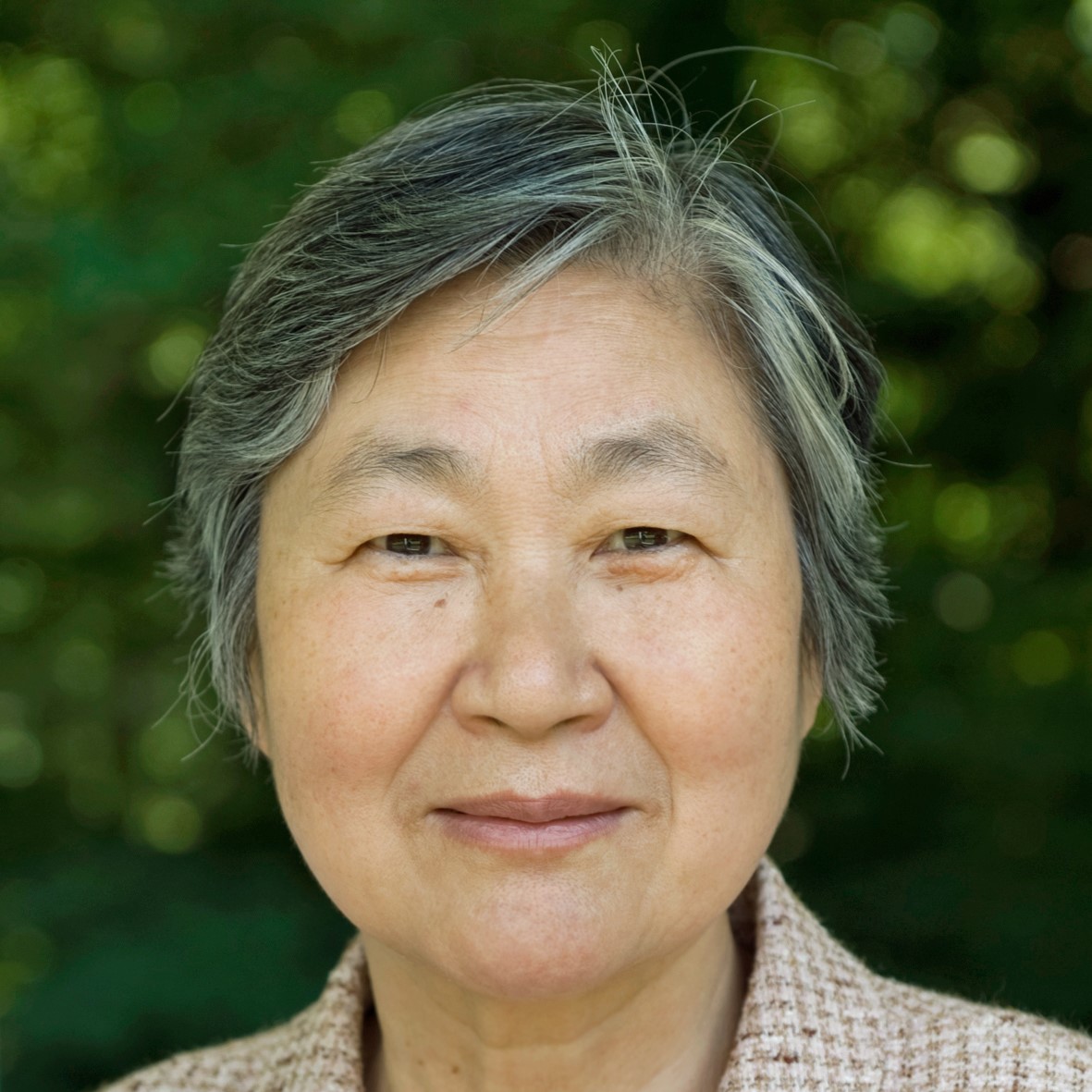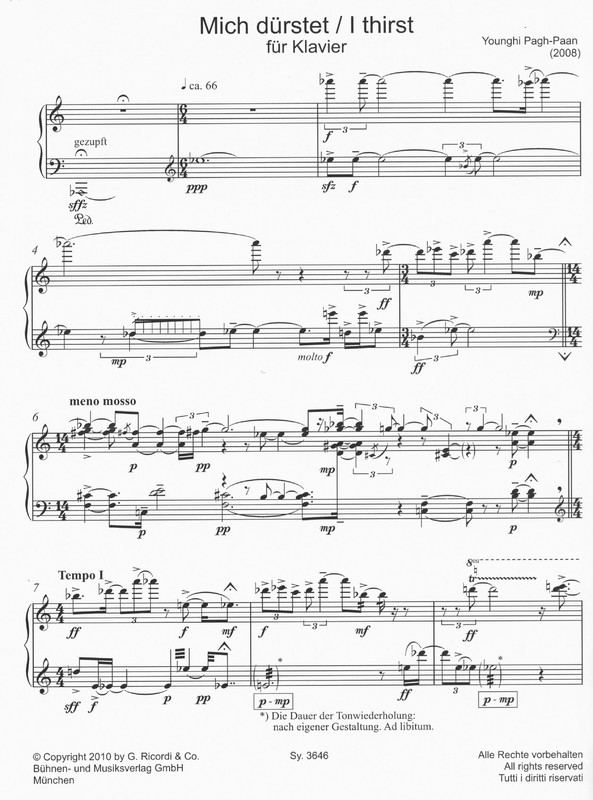I Thirst
Item
-
Score title
-
I Thirst
-
Composer
-
Younghi Pagh-Paan
-
Program note
-
I took the title for this piece from the words of the crucified Christ, in John 19,28.
I have been composing about the “Seven Sayings From The Cross” for four years. Two pieces have been completed, the a-cappella choir piece “Vide domini, vide affictionem nostram” (2006), and “In luce ambulemus” for tenor and orchestra (2007). Both are based on two sources: the “Seven Sayings From The Cross”, and excerpts from the letters of the Korean priest Yang-Eop Choe (1821-1861), who was the second Catholic priest in Korea.
When Jesus Christ says “I am thirsty”, his thirst is not only physical, but also spiritual. Therein lies a lesson for all of us. When the pianist Gaya Han asked me to compose this piece, the sounds of Jeju island, where her parents come from, sprang to mind. And when I think of Jeju, I also think of the tragic events that transpired there.
1948, the inhabitants of Jeju island revolted against the right-wing local government that had been installed by the powers in Seoul. The South Korean army, along with the police, employed a ruthless “burnt earth” policy to crush the revolt, which resulted in the destruction of over 400 villages, as well as the death of tens of thousands Jeju inhabitants. The South Korean government drew a veil of silence over the bloodshed until as recently as 1999.
The Jeju fishermen break into powerful song while rowing their boats out to the sea, and their singing contains a great sadness. Tears of sorrow, buried deep inside their hearts. Many souls calling out “I am thirsty” all at once, expressing their thirst for the truth.
But this piece is not focused on their sorrows. What I want to express through this music is that the unbroken spirit of their forebearers is still kept alive by the following generations on Jeju island.
I don’t know when we will finally hear the cries of “I am thirsty” from the realm of the dead. I don’t know when our ears will be ready to listen.
“Here lies the truth. Please take a look, here they lie. Our grandmothers and grandfathers…”
Younghi Pagh-Paan, 2008
 Younghi Pagh-Paan
Younghi Pagh-Paan

